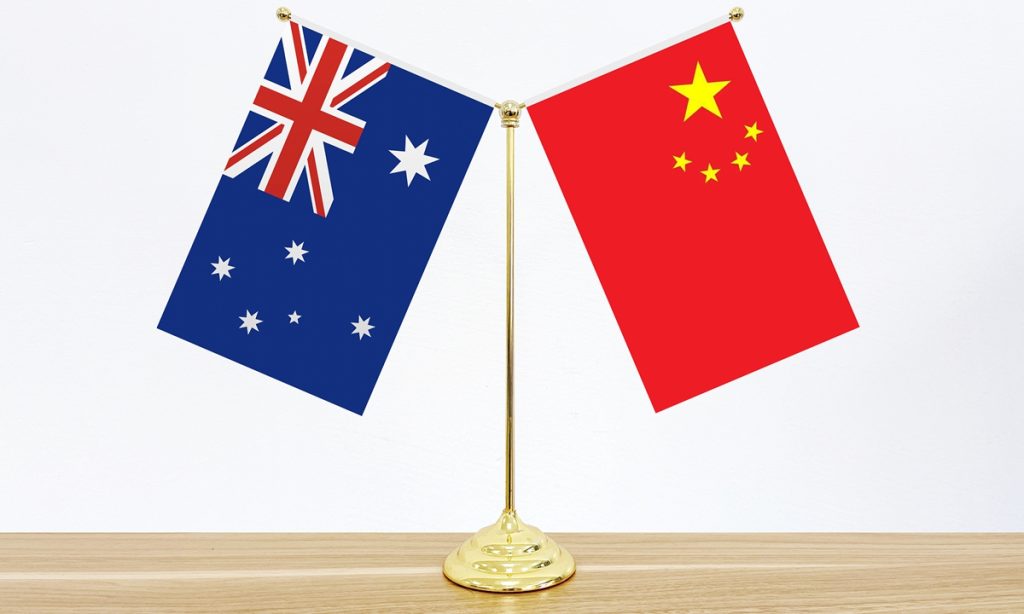Australia as US wishes being hostile to China is unfortunate and unfair

Editor's Note:
There have been signs of easing tensions in China-Australia relations recently, with the holding of the China-Australia High-Level Dialogue in September and a potential trip to China by Australian Prime Minister Anthony Albanese later this year. To what extent can China-Australia ties be repaired? Will the Albanese government give pragmatic cooperation a priority? Colin Mackerras (Mackerras), a fellow of the Australian Academy of the Humanities and world-renowned sinologist, shared his insights with Global Times (GT) reporter Su Yaxuan.
GT: To what extent can China-Australia ties be repaired? And what kind of relationship would be most beneficial to Australia?
Mackerras: I think it's a good thing that there are signs of improvement. If we have more trade, that's a good thing. I hope we can make some agreements that will help both sides. I don't think it's going to go back to the way it was before. I say this mainly because of these other things that Americans seem to be doing. For instance, the US, UK and Australia agreed on a nuclear-powered submarine project. What that does is take away our independence to some extent as well, and it ties the US and Australia together. Although it could be argued that it's not against China, it seems to me that it is and the Americans designed it to be just that, against China.
I think that's extremely unfortunate. Australia is heavily dependent on the Americans. In a context where the US doesn't want us to be friendly with China, they tend to be very hostile, and I think that's very unfortunate and very unfair. Australia is giving signs that it wants to be friends with China. At the same time, it's also digging up unfounded criticisms against China. That's unfair and unnecessary.
When you're talking about relations, you can talk about geopolitical relations, but you can also talk about people-to-people relations. I've now been to China more times than I can count since I first went there in 1964. I love going to China. I have a lot of friends there.
We can develop these people-to-people relations in many different ways. Students can go to school in another country. Scholars from both countries can conduct joint research. But also, you can have students coming from China to Australia and from Australia to China. I think tourism is a very interesting phenomenon, it can be economic, but I think it can also be people-to-people. When people go to another country as tourists, they're interested in its culture, they learn about its culture, they meet people, they make friends.
Despite what the Australian government is doing and despite the policy it has toward the Americans, which I am very much against, we can still make good friends with China. We can still have good people-to-people relationships. We can still receive Chinese students and Australian students can go to China, and we can also improve tourism. I'm very optimistic about all of this.
GT: How do you think the trade and economic ties between the two countries will develop in the years to come? Will the Albanese government view pragmatic cooperation as a priority to help bolster Australia's economy?
Mackerras: I think Albanese will develop economic trade and ties. I know there have been a few problems which people have talked about a lot here in Australia, but I don't see them as being fundamentally impossible to solve. With a bit of goodwill on both sides, I expect them to be solved gradually over time which would be good for both countries. Australia's economy is very closely aligned with China's at the moment. I don't want Australia to trade with other countries at the expense of trading with China. I think it's very valuable for Australia to trade with China and I expect that to happen and continue to happen.
GT: What are the main biases that currently exist in the West toward China? What do we most need to break? How should we do it?
Mackerras: It seems to me that the most difficult area is that the West is determined to see China as a threat. The reason is it wants to stay on top and it's not willing to let anyone else challenge its hegemony. It doesn't want this multipolar world. China often talks about this multipolar world, and it is not the only one. Most people seem to want a multipolar world. But the Americans and the West are determined not to have that because they think it is against them. They want to be No.1 and everyone else should do what they're told.
I think that's the main bias, but there are other biases too, because the Western media tend to put everything that happens in China in a negative light. Here in Australia, we have the Murdoch Press journals, like The Australian, and there are others, like the Fairfax Press and they mostly seem to put a negative spin on everything China does.
The media in Australia is currently indulging in a sort of triumphalism that China's economic success can't last. That seems to me to be very wrong. Looking at the big picture, China's economy is still growing well and will recover from present difficulties.
But as for how you're going to get over this, I don't know, but I do think promoting people-to-people relationships is very helpful indeed and an excellent way to go.